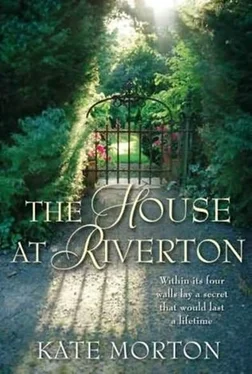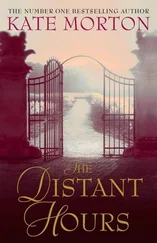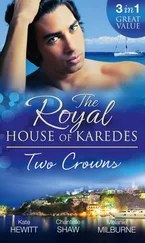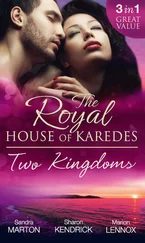‘You and his father…?’
She shook her head. ‘It wouldn’t have worked.’ She said it so firmly I knew better than to probe. ‘Finn and I are better this way.’
‘Where is he today?’ I said. ‘Finn?’
‘My mother’s minding him. They were at the park for ice-cream last I heard.’ She rolled her watch around her wrist to read the time. ‘Goodness! I hadn’t realised it was getting so late. I’d better be going, give her some relief.’
‘I’m sure she doesn’t need relieving. It’s special, grandparents and grandchildren. So much simpler.’
Is it always so, I wonder? I think perhaps it is. While one’s child takes a part of one’s heart to use and misuse as they please, a grandchild is different. Gone are the bonds of guilt and responsibility that burden the maternal relationship. The way to love is free.
When you were born, Marcus, I was knocked sideways. What a wonderful surprise those feelings were. Parts of me that had shut down decades before, that I’d grown used to doing without, were suddenly awakened. I treasured you. Recognised you. Loved you with a power almost painful.
As you grew, you became my little friend. Followed me about my house, claimed your own space in my study and set about exploring the maps and drawings I’d collected on my travels. Questions, so many questions, that I never tired of answering. Indeed, it is a conceit I allow myself that I am responsible, in some part, for the fine, accomplished man you have become…
‘They must be in here somewhere,’ said Ursula, searching her bag for car keys, preparing to leave.
I was beset by a sudden impulse to make her stay. ‘I have a grandson, you know. Marcus. He’s a writer of mysteries.’
‘I know,’ she said, smiling as she stopped fossicking. ‘I’ve read his books.’
‘Have you?’ Pleased as I always am.
‘Yes,’ she said. ‘They’re very good.’
‘Can you keep a secret?’ I said.
She nodded eagerly, leaned close.
‘I haven’t read them,’ I whispered. ‘Not right the way through.’
She laughed. ‘I promise not to tell.’
‘I’m so proud of him, and I’ve tried, I really have. I begin each with strong resolve, but no matter how much I’m enjoying them, I only ever get halfway. I adore a good mystery-Agatha Christie and the like-but I’m afraid I’m rather weak-stomached. I’m not one for all that bloody description they go on with these days.’
‘And you worked in a field hospital!’
‘Yes, but war is one thing, murder quite another.’
‘Maybe his next book…’
‘Perhaps,’ I said. ‘Though I don’t know when that will be.’
‘He’s not writing?’
‘He suffered a loss recently.’
‘I read about his wife,’ Ursula said. ‘I’m very sorry. An aneurism, wasn’t it?’
‘Yes. Terribly sudden.’
Ursula nodded. ‘My father died the same way. I was fourteen. Away at school camp.’ She exhaled. ‘They didn’t tell me until I got back to school.’
‘Dreadful,’ I said, shaking my head.
‘I fought with him before I left. Something ridiculous. I can’t even remember now. I slammed the door of the car and didn’t look back.’
‘You were young. All the young are like that.’
‘I still think of him every day.’ She pressed her eyes shut, then opened them again. Shook the memories away. ‘How about Marcus? How is he?’
‘He took it badly,’ I said. ‘He blames himself.’
She nodded, didn’t look surprised. Seemed to understand guilt and its peculiarities.
‘I don’t know where he is,’ I said then.
Ursula looked at me. ‘What do you mean?’
‘He’s missing. Neither Ruth nor I know where he is. He’s been gone the better part of a year.’
She was perplexed. ‘But… is he okay? You’ve heard from him?’ Her eyes were trying to read mine. ‘A phone call? A letter?’
‘Postcards,’ I said. ‘He’s sent a few postcards. But no return address. I fear he doesn’t want to be found.’
‘Oh, Grace,’ she said, kind eyes meeting mine. ‘I’m so sorry.’
‘So am I,’ I said. And it was then I told her about the tapes. About how much I need to find you. That it’s all I can think to do.
‘It’s the perfect thing to do,’ she said emphatically. ‘Where do you send them?’
‘I have an address in California. A friend of his from years ago. I send them there, but as for whether he receives them…’
‘I bet he does,’ she said.
They were mere words, well-meant assurances, yet I needed to hear more. ‘Do you think so?’ I said.
‘Yes,’ she said firmly, full of youthful certainty. ‘I do. And I know he’ll come back. He just needs space and time to realise it wasn’t his fault. That there was nothing he could have done to change it.’ She stood up and leaned across my bed. Picked up my walkman and placed it gently on my lap. ‘Keep talking to him, Grace,’ she said, and then she leaned toward me and kissed my cheek. ‘He’ll come home. You’ll see.’
There now. I have forgotten my purpose. Have been telling you things you already know. Sheer self-indulgence on my part: Lord knows I don’t have time for such distraction. Now where was I? 1915? No, 1916. War was consuming the fields of Flanders, the Major and Lord Ashbury were yet warm in their graves, and two long years of slaughter were still to come. So much devastation. Young men from the furthest reaches of the earth choreographed in a bloody waltz of death. The Major, then David…
No. I have neither stomach nor inclination to relive them. It is enough to say that they occurred. Instead, I will draw breath and say, ‘It was November 1918,’ and, as if by magic, it will be so.
We will return to Riverton. Hannah and Emmeline, who have spent the last two years of the war in London at Lady Violet’s townhouse, have just arrived to take up residence with their father. But they are changed: they have grown since last we spoke. Hannah is eighteen, about to make her society debut. Emmeline, fourteen, teeters on the edge of an adult world she is impatient to embrace. Gone are the games of yesteryear. Gone, since David’s death, is The Game. (Rule number three: only three may play. No more, no less.)
One of the first things Hannah does on return to Riverton is recover the Chinese box from the attic. I see her do it, though she does not know it. I follow her as she puts it carefully into a fabric bag and takes it with her to the lake.
I hide where the path between the Icarus fountain and the lake narrows and watch as she takes her bag across the lake bank to the old boathouse. She stands for a moment, looks around, and I duck lower behind the bushes so she doesn’t see me.
She goes to the edge of the escarpment, stands with her back to its ridge, then lines up her feet so the heel of one boot touches the toe of the other. She proceeds toward the lake, counting three steps before stopping.
She repeats this three times, then kneels on the ground and opens her bag. Pulls from it a small spade. She must have taken it when Dudley wasn’t looking.
Hannah digs. It is difficult at first, due to the pebbles that coat the lake bank, but in time she reaches the dirt beneath and is able to scoop more at a time. She doesn’t stop until the pile beside her is a foot high.
She removes the Chinese box from her bag then, and lays it deep within the hole. She is about to scoop the dirt on top when she hesitates. She retrieves the box, opens it, takes one of the tiny books from inside. She opens the locket around her neck and conceals it within, then returns the box to the hole and resumes burying it.
I leave her then, alone on the lake bank; Mr Hamilton will miss me if I’m away much longer and he is not in any mood to be trifled with. Downstairs, the Riverton kitchen is abuzz with excitement. Preparations are underway for the first dinner party since war broke out, and Mr Hamilton has impressed upon us that tonight’s guests, business investors, are Very Important to the Family’s Future.
Читать дальше












